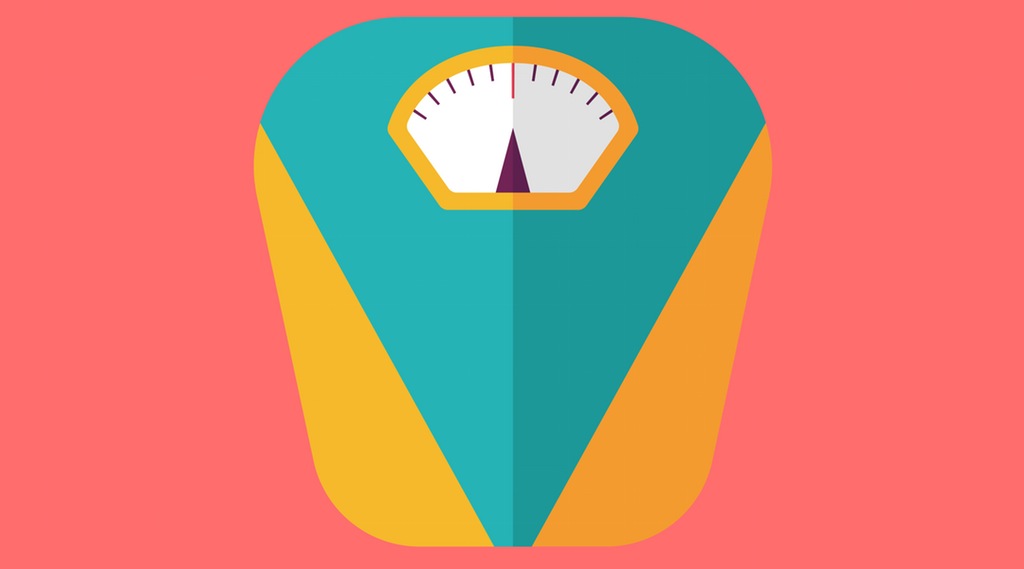Losing weight during Ramadan is a major motive for many people. You are fasting for the entire day, so why not lose weight as an added plus? The problem is, many people end up going in reverse. People think that after some hours of fasting during the holy month of Ramadan, they “DESERVE” to eat their favorite food as much as they want. Women, in particular, plan to prepare lavish meals for their family for iftar and suhoor without thinking much about the long-term consequences. Little do they realize that weight gain problems only occur when you become a Foodaholic. After long hours of fasting, craving for food is obvious, but regulating your intake is the only way to lose or retain your weight during Ramadan. Losing pounds during Ramadan may be easier than you think. Let’s explore some ways to lose weight during this blessed month by following these incredibly easy Ramadan diet tips.
1. Prepare beforehand!
“How do I banish my stubborn fat?” is the most common worry of many people. Trust me, Ramadan is a golden opportunity to eliminate such naughty fats. Start off 2 weeks before Ramadan by cutting out fatty and sugary food items from your diet. Limit the use of caffeine, tea or soda. Start drinking plenty of water as well. Getting into the habit of eating healthy will help you maintain a healthy lifestyle during the month of Ramadan and will also help you cut down on your cravings.
2. Do Not Rush the Suhoor Time
Gobbling down food in the last minute when the Fajr siren is about to sound should certainly not be the approach. Stuffing your stomach with heavy food in a rush causes indigestion which can upset your stomach for the entire day. Also, estimating your intake when eating in a rush is very difficult. You end up eating much more than you normally would. Your intake of food should be in a moderate, easy and relaxing manner in order to consume the minimum amount of calories. This is one of the easiest ways to learn how to lose weight during Ramadan. Your motive should be eaten as much as is “enough”. Do not over-fill your stomach with food in a hurry.
3. Don’t Skip Suhoor
One of the best Ramadan diet tips is to never skip suhoor. Many people presume that skipping suhoor is an excellent idea for weight loss. On the contrary, this has a negative impact on your weight. Skipping suhoor pushes your body towards. If you skip food at suhoor times, the starvation response in your body speeds up and slows down metabolic process. So, when you finally do eat at Iftar, you will end up eating more, plus, the lower metabolic rate of your body will metabolize the food in slow motion, resulting in extensive gut transit times and ultimate weight gain.
4. Hydrate Yourself
Keeping yourself hydrated will not only keep your body away from being dehydrated, but it will also aid in limiting your sugar cravings at iftar times. Automatically, a person’s sugar level is maintained naturally. Drinking plenty of water will help quench your thirst during fasting. To make things even simpler, here is a schedule of water intake that you can follow during Ramadan:
- Two glasses at the time of breaking the fast.
- Four glasses in between suhoor and iftar.
- Two glasses at Suhoor.
Furthermore, avoiding all the caffeinated drinks like coffee or black tea will help you keep your sugar level at a bare minimum and will also help cut down on a number of calories you ingest. Also, any type of carbonated drinks should be banned from home. Not only do these carbonated drinks contribute to your weight gain, they are extremely harmful to your kidneys as well. Drinking carbonated drinks on an empty stomach can precipitate an acute attack of kidney failure. However, herbal teas are good for digestion and weight loss. You can include them as a regular daily item after Tarawih prayers. They can be one of the most effective Ramadan diet tips.
5. Exercise or Walk
There are many research studies that prove exercise during fasting is more effective than during non-fasting days. Your body is already in a fat consumption stage. The stored fat is being utilized as ketones and the exercise only speeds up this fat melting process. People always come up with an excuse that exercising during Ramadan isn’t possible. However, when you way the benefits of 10 to 15 minutes exercise, things start looking much easier. Ramadan is not a “laziness month” to sleep and lay all day along. You shouldn’t use it as an excuse to avoid exercise. If you are aiming for the perfect body and minimum weight gain, certain sacrifices have to be made.
6. Have a Balanced Iftaar
It is a misconception that food in iftar is to make up for those hours we spent without food. Eating too much at iftar is the biggest culprit for your weight gain. For the sake of your weight and health, treat iftar as a normal dinner and take light and balanced food. If you are on a mission to lose weight during Ramadan, skip carbohydrate rich food items and fried dishes. Stay away from junk food and heavy meals which are rich in fat and calories. Follow the suhoor rule that was described above, eat as much as is “enough”. It purely depends on you. Your weight reflects how much you allow yourself to eat, Follow the footsteps of our beloved Prophet Muhammad S.A.W.W. who always used to eat in moderation whether it’s Ramadan or other months.
7. Avoid Eating Between Iftaar and Suhoor
One of the best things to know about how to lose weight during Ramadan is to keep a check on your eating habits between iftar and suhoor. Your body gains weight when you eat continuously between Iftaar and Suhoor timings. Eating this much will also make you feel tired and lethargic besides weight gain. Try to avoid the in-between snacks. Instead, fix a single time and eat healthy to consume the minimum possible calories.
8. Eat Healthy And Homey
Ramadan is a God gifted opportunity to adjust your body metabolism process and kick start a healthy lifestyle. The first and foremost thing to shed some extra pounds during the holy month of Ramadan is to eat home-cooked food. There is a new trend now where people go out with their families at Sahoor and Iftar times to restaurants. They eat a lot of tempting baked, processed and fried food in such places which usually ends up in gaining weight rather than losing it. Once in a month is fine, but you should not make it a habit. Ramadan is not about over-eating, but it means eating healthy and balanced. By cooking at home, you can make sure that your food has a minimal glycemic index impact. Moreover, you can control the amount of fat and sugar in your meal by controlling the ingredients. Be sure that this Ramadan, you come out as a better-looking you.
9. Avoid Multi-Vitamins and Energy Drinks
A common misconception is that taking multi-vitamins during Ramadan is healthy, simply because people think that they are not getting enough food. When taken inappropriately, they can cause weight gain. In addition, a lot of people consume energy drinks after iftar. It gives them the temporary feeling of activeness and freshness, but in reality, they cause lot damage than good. Energy drinks are loaded with sugars, which cause rapid elevation of blood sugar. This sugar ends up being converted into fat and being stored in the body. Weight gain is one of its immediate results.
10. Just the right amount of sleep
It is very important to understand that the right amount of sleep is necessary for maintaining optimum metabolism. Too less or too much can disrupt the complex cycle of reactions in your body and push it into a state of chronic weight gain. Staying active means you are always burning some calories, which help prevent those extra calories from sticking to your body.
To be sure about how to lose weight during Ramadan, following the above guide will help you work wonders. Fasting during Ramadan aids you jump-start a weight loss process which you can pursue for the rest of the year. These Ramadan diet tips will surely help you lose weight instead of gaining it, something that we all dread!
References:
Kris Gunnars, B. (2017). How Intermittent Fasting Can Help You Lose Weight. Authority Nutrition. Retrieved 27 April 2017, from https://authoritynutrition.com/intermittent-fasting-and-weight-loss/
Chai, C. (2017). Fasting for weight loss? Here’s why scientists say it works long-term. Global News. Retrieved 27 April 2017, from http://globalnews.ca/news/2572885/fasting-for-weight-loss-heres-why-scientists-says-it-works-long-term/
How Alternate-Day Fasting Helps Manage Your Weight. (2017). Mercola.com. Retrieved 27 April 2017, from http://articles.mercola.com/sites/articles/archive/2014/06/08/alternate-day-fasting.aspx
Cold, F., Health, E., Disease, H., Management, P., Conditions, S., & Problems, S. et al. (2017). Diet Myth or Truth: Fasting Is Effective for Weight Loss. WebMD. Retrieved 27 April 2017, from http://www.webmd.com/diet/features/diet-myth-truth-fasting-effective-weight-loss




